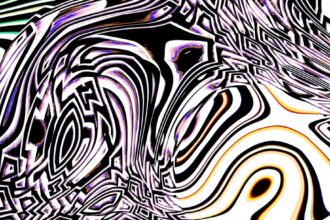Derealization and depersonalization are psychological phenomena that can leave you feeling detached from reality or your own self. Derealization refers to the sensation that your surroundings are not real, as if you are observing the world through a foggy lens. You might find that familiar places seem strange or dreamlike, and you may feel as though you are living in a movie or a dream.
On the other hand, depersonalization involves a sense of disconnection from your own thoughts, feelings, or sense of identity.
These experiences can be unsettling and confusing, often leading to a sense of anxiety or fear.
While they can occur in isolation, they frequently manifest together, creating a complex interplay of feelings that can be difficult to navigate. Understanding these phenomena is crucial for recognizing their impact on your life and seeking appropriate help when needed.
Key Takeaways
- Derealization and depersonalization are dissociative disorders that involve feeling disconnected from one’s surroundings and/or oneself.
- Symptoms of derealization include feeling like the world is unreal or distorted, while depersonalization involves feeling detached from one’s own thoughts, feelings, or body.
- Causes of derealization and depersonalization can include trauma, stress, anxiety, and substance abuse.
- Derealization and depersonalization can affect daily life by causing difficulties in concentration, memory, and emotional regulation.
- Diagnosing and treating derealization and depersonalization often involves a combination of therapy, medication, and coping strategies.
Symptoms of Derealization and Depersonalization
The symptoms of derealization and depersonalization can vary widely from person to person, but they often share common threads. You might experience visual distortions, such as objects appearing smaller or larger than they actually are, or a sense of time distortion where minutes feel like hours. Emotionally, you may feel numb or disconnected from your feelings, leading to a sense of emptiness or confusion about your identity.
In addition to these symptoms, you may also experience physical sensations such as dizziness, lightheadedness, or a racing heart. These physical manifestations can exacerbate feelings of anxiety and panic, making it even more challenging to cope with the experience. Recognizing these symptoms is the first step toward understanding what you are going through and seeking the right support.
Causes of Derealization and Depersonalization

The causes of derealization and depersonalization can be multifaceted and often stem from a combination of psychological, environmental, and biological factors. Stressful life events, such as trauma, abuse, or significant loss, can trigger these experiences. You may find that periods of intense stress or anxiety lead to feelings of detachment as your mind attempts to protect itself from overwhelming emotions.
Additionally, certain mental health disorders, such as anxiety disorders, depression, and post-traumatic stress disorder (PTSD), can increase the likelihood of experiencing derealization and depersonalization. Substance use, particularly hallucinogens or high doses of marijuana, can also induce these sensations. Understanding the underlying causes can help you identify potential triggers in your own life and work toward addressing them.
How Derealization and Depersonalization Affects Daily Life
| Impact Area | Effects |
|---|---|
| Work | Difficulty concentrating, decreased productivity |
| Social Life | Feeling disconnected from others, difficulty forming relationships |
| Emotional Well-being | Anxiety, depression, feeling numb |
| Physical Health | Fatigue, headaches, muscle tension |
| Everyday Tasks | Forgetfulness, feeling detached from surroundings |
Living with derealization and depersonalization can significantly impact your daily life. You may find it challenging to engage in social situations or maintain relationships due to feelings of disconnection from others. Everyday tasks may become overwhelming when you feel detached from your surroundings or yourself.
This disconnection can lead to difficulties in concentration, making it hard to focus on work or school responsibilities. Moreover, the emotional toll of these experiences can lead to increased anxiety and depression. You might feel isolated in your struggles, unsure if others can understand what you are going through.
This sense of alienation can further exacerbate feelings of loneliness and despair, creating a cycle that is difficult to break. Recognizing how these experiences affect your daily life is essential for finding effective coping strategies and support.
Diagnosing Derealization and Depersonalization
Diagnosing derealization and depersonalization typically involves a comprehensive evaluation by a mental health professional. During this process, you will likely discuss your symptoms, medical history, and any significant life events that may have contributed to your experiences. It is essential to be open and honest during this assessment to ensure an accurate diagnosis.
Mental health professionals may use specific criteria outlined in the Diagnostic and Statistical Manual of Mental Disorders (DSM-5) to determine whether you meet the criteria for depersonalization-derealization disorder. This diagnosis is made when symptoms are persistent and cause significant distress or impairment in functioning. Understanding the diagnostic process can help alleviate some anxiety surrounding your experiences and provide clarity on the next steps toward treatment.
Treatment Options for Derealization and Depersonalization

Treatment options for derealization and depersonalization vary depending on the severity of your symptoms and their underlying causes. Psychotherapy is often the first line of treatment, with cognitive-behavioral therapy (CBT) being particularly effective. In therapy, you can explore the thoughts and feelings associated with your experiences while developing coping strategies to manage symptoms.
In some cases, medication may be prescribed to help alleviate symptoms associated with anxiety or depression that may accompany derealization and depersonalization. Antidepressants or anti-anxiety medications can provide relief for some individuals, but it is essential to work closely with a healthcare provider to determine the best course of action for your specific situation.
Coping Strategies for Derealization and Depersonalization
Coping with derealization and depersonalization requires a multifaceted approach that includes both self-care practices and professional support. Grounding techniques can be particularly helpful in bringing you back to the present moment when you feel detached from reality. These techniques may include focusing on your breath, engaging in physical activities, or using sensory experiences—such as holding an object with a distinct texture—to anchor yourself in the here and now.
Additionally, maintaining a healthy lifestyle can play a significant role in managing symptoms. Regular exercise, a balanced diet, and adequate sleep can help reduce stress levels and improve overall well-being. Mindfulness practices such as meditation or yoga can also foster a greater connection between your mind and body, helping you feel more grounded in your experiences.
How to Support Someone with Derealization and Depersonalization
If someone close to you is experiencing derealization or depersonalization, offering support can make a significant difference in their journey toward healing. Start by creating a safe space for them to express their feelings without judgment. Listening actively and validating their experiences can help them feel understood and less isolated in their struggles.
Encourage them to seek professional help if they haven’t already done so. You might offer to accompany them to appointments or assist them in finding resources that can aid their recovery process. Additionally, educating yourself about derealization and depersonalization can equip you with the knowledge needed to provide informed support while fostering empathy for their situation.
The Connection Between Derealization and Depersonalization and Mental Health Disorders
Derealization and depersonalization often coexist with various mental health disorders, creating a complex relationship between these experiences and broader psychological issues. Anxiety disorders are particularly linked to these phenomena; when you experience heightened anxiety levels, it can trigger feelings of detachment as a coping mechanism. Moreover, individuals with post-traumatic stress disorder (PTSD) frequently report episodes of derealization or depersonalization as part of their symptomatology.
Understanding this connection is crucial for recognizing how these experiences fit into the larger context of mental health challenges you may face.
The Importance of Seeking Professional Help for Derealization and Depersonalization
Seeking professional help for derealization and depersonalization is vital for several reasons. First and foremost, mental health professionals possess the expertise needed to accurately diagnose your condition and develop an appropriate treatment plan tailored to your needs. They can provide valuable insights into coping strategies that may not be apparent when navigating these experiences alone.
Additionally, professional support offers a safe environment where you can explore your feelings without fear of judgment. This therapeutic relationship can foster healing by allowing you to process your experiences while gaining tools to manage symptoms effectively. Remember that reaching out for help is a sign of strength; it demonstrates your commitment to understanding yourself better and improving your quality of life.
Living with Derealization and Depersonalization: Personal Stories and Experiences
Living with derealization and depersonalization can be an isolating experience; however, sharing personal stories can foster connection and understanding among those who face similar challenges. Many individuals describe their journeys as filled with ups and downs—moments of clarity interspersed with periods of confusion. For some, finding community through support groups or online forums has been instrumental in their healing process.
Hearing others articulate their experiences can validate your feelings while providing hope that recovery is possible. These shared narratives remind you that you are not alone in your struggles; there are others who understand what it means to navigate the complexities of derealization and depersonalization. In conclusion, understanding derealization and depersonalization is essential for recognizing their impact on daily life and mental health.
By exploring symptoms, causes, treatment options, coping strategies, and support systems, you can take proactive steps toward managing these experiences effectively. Remember that seeking professional help is crucial in this journey; it opens doors to healing while fostering connections with others who share similar experiences.
Derealization and depersonalization are dissociative experiences that can often occur together, leading individuals to feel disconnected from their surroundings or themselves. These experiences can be distressing and may arise due to various factors, including stress, trauma, or certain mental health conditions. For those seeking more information on these phenomena, an insightful article can be found on the Unplugged Psychology website. This resource delves into the nuances of derealization and depersonalization, offering valuable insights and coping strategies. To explore this topic further, you can visit the article by following this link.
LEARN MORE About Unmasking the Mysteries Behind Depersonalization and Derealization
FAQs
What is derealization and depersonalization?
Derealization is a mental health condition where a person feels detached from their surroundings, as if the world around them is unreal or distorted. Depersonalization is a similar condition where a person feels detached from themselves, as if they are observing their own thoughts, feelings, and actions from a distance.
Can you have both derealization and depersonalization at the same time?
Yes, it is possible for a person to experience both derealization and depersonalization simultaneously. This can be a distressing and disorienting experience for the individual.
What are the causes of derealization and depersonalization?
Derealization and depersonalization can be caused by a variety of factors, including trauma, stress, anxiety, depression, substance abuse, and certain medical conditions. It can also be a symptom of other mental health disorders such as PTSD, panic disorder, or dissociative disorders.
How are derealization and depersonalization treated?
Treatment for derealization and depersonalization may include therapy, medication, and lifestyle changes. Cognitive-behavioral therapy (CBT) and mindfulness-based approaches have been found to be effective in treating these conditions. It is important for individuals experiencing these symptoms to seek professional help from a mental health professional.




